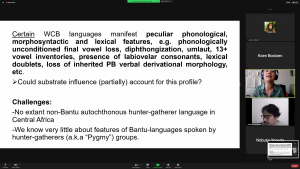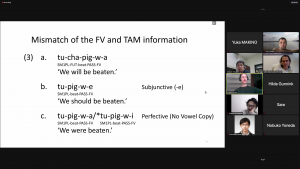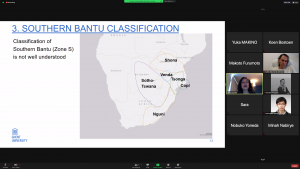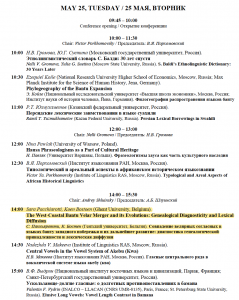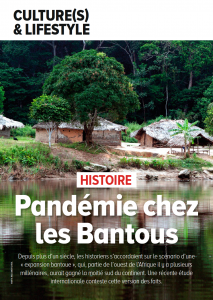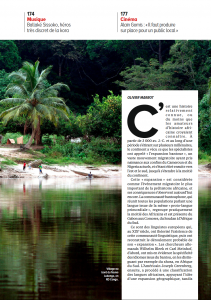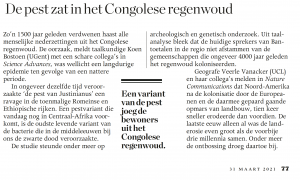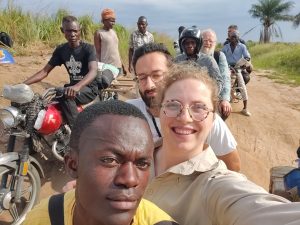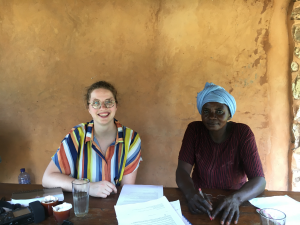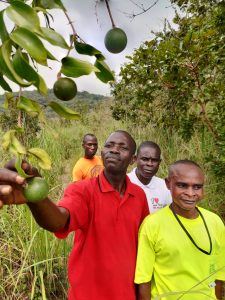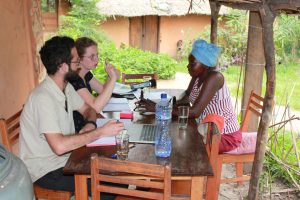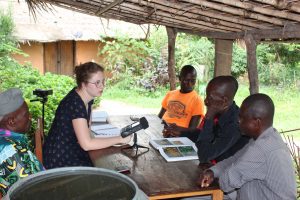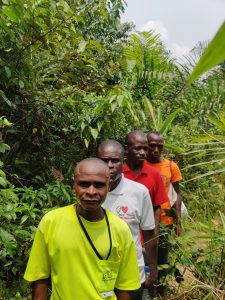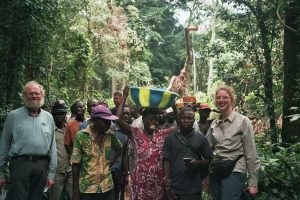On May 12, 2021, BantUGent and the Research Institute for Languages and Cultures of Asia and Africa (ILCAA) in Tokyo (Japan) have the first kick-off meeting of their FWO-JSPS-funded collaborative project on “The Past and Present of Bantu Languages: Integrating Micro-Typology, Historical-Comparative Linguistics and Lexicography“. It also covers BantuFirst research.
The meeting is online. The Zoom link to participate can be obtained via koen.bostoen@ugent.be upon request.
9:30-9:40: Opening remarks
9:45-11:15: The first session
9:45-10:15 Sara Pacchiarotti: “Phylogenetics and the Comparative Method as tools for the internal classification of West-Coastal Bantu: results and challenges”
10:15-10:45 Lorenzo Maselli: “Phonetic and phonological research on hunter-gatherer substrate interference in the West-Coastal Bantu homeland region: some preliminary results and methodological remarks”
10:45-11:15 Kyoungwon Jeong: “Micro-parametric research on cross-Bantu phonological microvariation: a test case in Swati”
11:15-11:30 Coffee
11:30-13:00: The second session
11:30-12:00 Yuka Makino: “Contrastive analysis on the local variation of TAM expressions in M40 and M50″
12:00-12:30 Makoto Furumoto: “A synchronic and diachronic analysis of the Kimakunduchi final vowel”
12:30-13:00 Hilde Gunnink: “Language contact between migrating Bantu speakers and resident Khoisan speakers in southern Africa“
